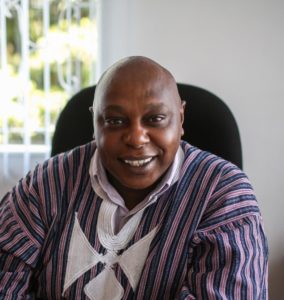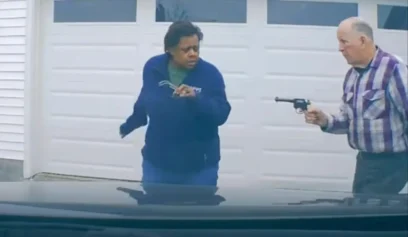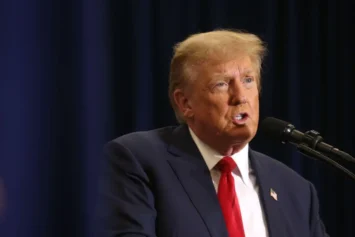
U.N. Special Rapporteur Maina Kiai.U.N. Special Rapporteur Slams U.S. for Discriminatory Treatment of African-Americans, Impeding Basic Right to Assembly
The United States has repeatedly been called out for its discriminatory treatment of Black Americans, biased criminal justice system and violations of citizens’ basic civil rights. Now an expert from across the pond has joined the ranks of U.S. critics.
Kenyan human rights activist and United Nations Special Rapporteur Maina Kiai released a scathing report late last month warning that racism in the U.S. ultimately impedes upon the basic rights of Americans — particularly Americans of color.
“African-Americans are subjected to systematic police harassment — and sometimes much worse — often for doing nothing more than walking down the street or gathering in a group,” Kiai wrote in a lengthy 6,500-word report. “People have good reason to be angry and frustrated at the moment,” he said. “And it is at times like these when robust promotion of assembly and association rights are needed most.”
According to Salon, the Harvard Law School graduate took a 17-day trip to the U.S., from July 11 to 27. The point of this journey was to examine the civil rights situation of the U.S., in which Kiai witnessed the extreme “racial, social and economic inequality” often faced by Black Americans.
“…It is impossible to discuss these [civil rights] without issues of racism pervading the discussions,” he noted. “Racism and the exclusion, persecution and marginalization that come with it, affect the enabling environment for the exercise of association and assembly rights.”
Kiai goes on to emphasize that the key to understanding racism is to look back at the 300-plus years of slavery and post-Civil War Jim Crow era, in which Blacks were segregated, marginalized and subjected to “a life of misery, poverty, and, persecution.” He linked these old methods of exclusion and discrimination to modern-day policies like the War on Drugs, which destroyed thousands of Black families, and “broken windows” policing. In his report, Kiai described the controversial strategies as “old philosophies” of discrimination “cloaked in new and euphemistic terms.”
While denouncing the War on Drugs, the Kenyan activist slammed the Clinton administration for passing a series of incredibly harsh crime bills, which resulted in the mass incarceration of millions of African-Americans. Kiai went on to explain how such tough legislation and a biased criminal justice ultimately targets Blacks. He pointed out that minor criminal convictions and arrests often cause issues down the line, making it difficult to a secure a job, apply for a student loan, or find a place to live.
“This marginalization in turn makes it more likely that a person will turn to crime, for lack of any other option, and the vicious cycle continues,” Kiai wrote. “These discriminatory laws and practices need to be seen in the larger context.”
“There is justifiable and palpable anger in the black community over these injustices,” he continued. “It needs to be expressed. This is the context that gave birth to the non-violent Black Lives Matter protest movement and the context in which it must be understood.”
During his trip, the Special U.N. Rapporteur said he was able to speak with BLM organizers. This was the conclusion he drew from their discussions: “It is clear that “Black Lives Matter” does not mean that other lives—green, purple, blue, white or other color—do not matter. The Black Lives Matter movement is simply a reaffirmation that black lives do in fact matter, in the face of a structure that systematically devalues and destroys them, stretching back hundreds of years.”
Kiai also met with federal, state and local government officials on his journey to discuss the military police presence at a number of peaceful protests around the country. He asserted that the intimidation of riot gear and threat of mass arrests “is not only a violation of the right to peaceful assembly, it’s also dangerous for participants.” The detainment of demonstrators for arbitrary and petty charges is another chilling method police use to restrict Americans’ civil rights, according to Kiai.
“Petty charges and high numbers of arrests further chill and undermine the right to peaceful assembly,” Kiai said. “Law enforcement officers have extremely wide and often unaccountable discretion to detain, arrest and formulate certain charges.”
His critical report of the U.S. touched on other pressing issues such as grave discrimination often faced by African-Americans, counter-terrorism’s chilling effect on civil liberties, and a former U.N. commissioner’s claim that “apartheid” was present in the U.S.
Kiai’s analysis wasn’t all bad however. In the end, he referred to America as a “nation of struggle and resilience,” and praised the country’s civil society sector.
“I want to thank everyone who took the time to meet with me and share their stories,” he said. “The diversity, energy and dedication of America’s civil society sector is one of greatest strengths of this country, and it is something that the United States and its people should be thankful for. I applaud each and every one of you for your work.”


